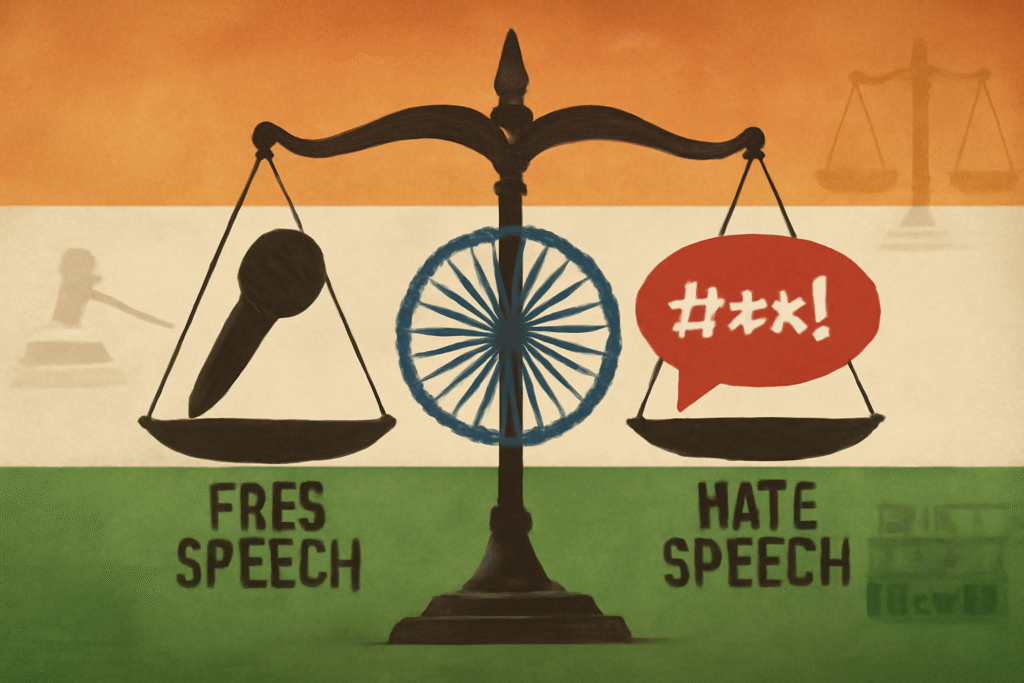Published On: 30th November, 2024
Authored By: Manthan Kurmi
Snehangshu Kanta Aacharya Institute of Law/Kalyani University
Introduction
Marital rape occurs when a husband forces his wife into sexual activity without her consent, with the law assuming the wife cannot refuse due to the marriage. In India, this issue remains largely unaddressed because of a legal exemption under Section 375 of the Indian Penal Code (IPC), which states that a husband having intercourse with his wife, unless she is under 18, is not committing rape. This law reflects deep-seated patriarchal views that deny women within marriage the basic right to bodily autonomy and dignity. This legal stance contradicts the Indian Constitution’s promises of equality (Article 14) and personal liberty (Article 21).
This article dives into the legal gaps that exist in India surrounding marital rape and makes a case for reforms. It will analyze the historical roots of the issue, the present legal context, important court cases, and judicial trends. Additionally, India’s approach will be compared with international standards, advocating for legislative changes that align with human rights principles and protect women’s autonomy in marriage.
Historical Background
The marital rape exemption in Indian law has its origins in colonial times. In 1860, the Indian Penal Code was written with the understanding that women were the property of their husbands, and thus, marital consent for sex was presumed permanent. The belief was that a woman, by marrying, gave up the right to refuse sex with her husband for life. Although India has made strides in women’s rights in other areas, such as the Domestic Violence Act of 2005 and the Criminal Law (Amendment) Act of 2013, it has not yet criminalized marital rape. This has been criticized as perpetuating violence against women within marriage.
The Current Legal Framework
Section 375 of the IPC, which outlines the crime of rape, includes an exception that marital rape does not count as rape unless the wife is below 18 years of age. This exemption strips women of their right to withhold consent, essentially allowing non-consensual sex within marriage.
This legal exemption violates fundamental constitutional rights, particularly the right to equality (Article 14) and the right to personal liberty (Article 21). Additionally, it stands in contrast to India’s international commitments, such as those under the Convention on the Elimination of All Forms of Discrimination Against Women (CEDAW), which India has ratified. CEDAW obligates countries to protect women from all forms of violence, including marital rape.
Ongoing Debates and Challenges
The marital rape exemption has sparked fierce debate in India. Critics argue that this law stems from outdated patriarchal beliefs that treat women as subservient to their husbands. A landmark case, *Independent Thought v. Union of India* (2017), saw the Supreme Court rule that sex with a wife under the age of 18 is rape, regardless of marital status. However, this judgment failed to protect adult women who are married.
Common arguments against criminalizing marital rape include the risk of false accusations, the sanctity of marriage, and concerns over state interference in private lives. But these arguments are flawed. Domestic violence, for example, is already criminalized under the Protection of Women from Domestic Violence Act, and sexual violence should be treated no differently. Additionally, legal mechanisms can be put in place to prevent false accusations, as has been done with Section 498A of the IPC, which deals with cruelty by a husband or his relatives.
Judicial Precedents and Key Cases
The Independent Thought case reflected the judiciary’s evolving perspective on marital rape, particularly regarding minor wives. However, courts have been more conservative when dealing with adult women. For instance, in Vikash Kumar v. State of Haryana (2016), the Punjab and Haryana High Court rejected a plea to prosecute a case of marital rape, reaffirming the legal exemption.
In a previous case, Phul Singh v. State of Haryana (1979), the Supreme Court acknowledged that marital rape is a form of legal violence, yet it refrained from challenging the constitutionality of the marital rape exemption. As a result, the responsibility to introduce the change lies with lawmakers.
Comparative International Analysis
Many countries have recognized marital rape as a human rights violation and have criminalized it. For instance, the United Kingdom abolished its marital rape exemption in 1991, following the *R v. R* ruling. Other nations, including South Africa, Canada, and Australia, have also criminalized marital rape, affirming women’s rights within marriage.
In contrast, India lags in ensuring justice for married women. These international examples prove that criminalizing marital rape does not undermine marriage but strengthens the legal and human rights of women within it.
Conclusion
Marital rape is a severe violation of a woman’s fundamental right to bodily integrity and dignity. The current legal framework under Section 375 of the IPC fails to protect married women and violates constitutional principles and international obligations. While the Independent Thought case was a step forward in addressing marital rape involving minor wives, it did not go far enough in ensuring justice for all women.
Legislative reforms are urgently needed to criminalize marital rape, ensuring that all women, regardless of marital status, are protected under the law. While safeguards should be put in place to prevent misuse, the legal system must affirm that marriage is not a license for sexual violence.
References
– Indian Penal Code, 1860, Section 375.
– Independent Thought v. Union of India (2017) 10 SCC 800.
– Phul Singh v. State of Haryana (1979) AIR 1979 SC 1647.
– Convention on the Elimination of All Forms of Discrimination Against Women, 1993.




